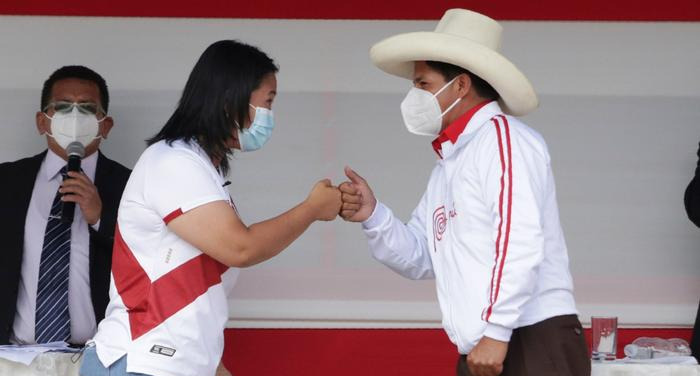
Elections for president in Peru this coming Sunday
by Guillermo Alvarado
In the midst of a severe wave of infections due to COVID-19, nearly 25 million citizens are summoned to the polls next Sunday in Peru, to define between two diametrically opposed options the future president of that nation.
The health crisis, which has caused one million 890 thousand cases and nearly 180,000 deaths, according to the latest figures, is not the only inconvenience faced by the organizers and participants in the electoral process.
This is a country where six of its latest presidents have been accused, investigated, prosecuted or imprisoned for corruption or serious human rights violations, which has undermined the citizens’ confidence in their authorities.
One of them, Alberto Fujimori, who is serving a 25-year sentence for abuses against the fundamental guarantees of Peruvians, is the father of Keiko Fujimori, who is competing in the second and final round on June 6.
She is a representative of the radical right, with a neoliberal agenda and desperately seeking office to avoid a money laundering case, which could send her to jail for 30 years.
On the other side is Professor Pedro Castillo, proposed by Peru Libre, who has been the victim of a powerful campaign by the conservative political sector, large enterprises and the media, who insist on portraying him as a "leftist close to terrorism."
Castillo's proposal is fundamentally based on making the country's natural wealth benefit the most unprivileged people instead of going to the accounts of transnational by corporations, also calling for a constitutional referendum and returning sovereignty and dignity to the people.
He promised to universalize health and education, fight chronic malnutrition in the countryside and favor small and medium producers to guarantee consumption.
The opposing visions of Keiko Fujimori and Pedro Castillo are also a reflection of a fractured nation, divided between Lima, the capital, where the commercial and financial power rest, and the Andean region, impoverished and abandoned for decades.
It remains to be seen whether the vote of the poorest sectors will prevail, or will be overtaken by the Fujimori-based electoral mechanism, now supported by the interests of the wealthy and traditional politicians, afraid of losing their privileges and impunity.

